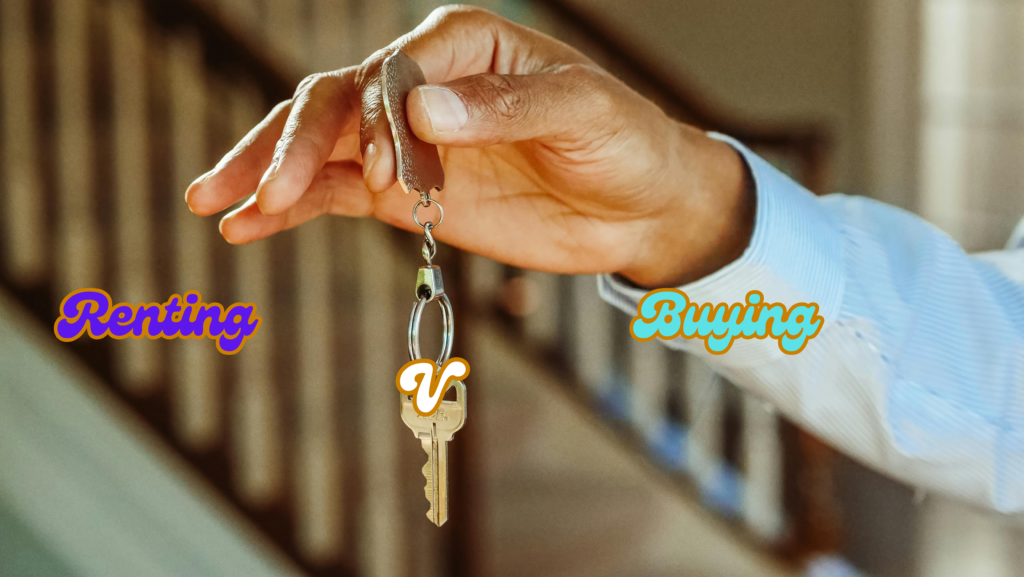What’s Best for You—Renting or Buying?
Have you ever wondered whether renting or buying is the smarter move for your finances? Maybe you’re saving for a home but feeling overwhelmed by the pros and cons of each option. Or perhaps you’re stuck in a cycle of paying rent and wondering if it’s time to invest in a property.
Here’s the truth: the decision to rent or buy isn’t one-size-fits-all. It depends on your goals, lifestyle, and financial situation.
By the end of this article, you’ll understand the key factors to consider, empowering you to make a decision that’s best for your future.
The Pros and Cons of Renting: Flexibility vs. Investment
When it comes to renting, you’re paying for convenience and flexibility. Let’s break down the major advantages and disadvantages:
Pros of Renting
- Lower Upfront Costs: Renting typically requires a security deposit and maybe a month’s rent upfront, making it accessible for those still building their savings.
- Flexibility to Move: You’re not tied down to a property, which is perfect if you’re not sure where you want to settle long-term.
- No Maintenance Worries: Leaky faucet? Broken heater? Those are the landlord’s problems, not yours.
Cons of Renting
- No Equity: Your rent payments don’t build ownership in the property, meaning you won’t see a return on that money.
- Rent Increases: Landlords can hike up rent costs, potentially making it less affordable over time.
- Limited Personalization: Want to paint the walls or renovate the kitchen? In most rentals, you’re stuck with the way things are.
Renting works well if you value flexibility and don’t want the responsibility of maintaining a home. But if building long-term wealth is your goal, it might not be the best choice.
The Advantages of Buying: Building Equity and Stability
Buying a home is often seen as a hallmark of financial success. But does it really make sense for you? Let’s look at the benefits and drawbacks.
Pros of Buying
- Equity Building: Every mortgage payment you make brings you closer to owning your home outright.
- Stability: No rent increases or fear of being asked to move when the lease is up.
- Creative Freedom: Paint the walls, renovate the bathroom, or create your dream garden—it’s your home, your rules.
Cons of Buying
- Higher Upfront Costs: Between the down payment, closing costs, and other fees, buying a home is a major financial commitment.
- Responsibility for Repairs: A broken water heater or roof repair? That’s on you now.
- Less Mobility: Selling a home takes time, so you lose some of the flexibility renting offers.
Buying is often better if you’re financially ready and plan to stay in one location for several years. But timing and preparation are key.
Key Financial Considerations: Are You Ready to Buy?
So, how do you decide if buying is financially feasible? Start by assessing your current financial situation:
- Your Savings: Do you have enough for a down payment (typically 10–20% of the home price) and an emergency fund?
- Your Debt: High-interest debt, like credit cards, can make it harder to manage a mortgage.
- Your Income Stability: A steady income is crucial, as a mortgage is a long-term commitment.
- Your Budget: Experts recommend keeping your housing costs at or below 30% of your monthly income.
If you’re not financially ready to buy, don’t worry. Renting can give you the time and flexibility to save while still having a place to call home.
Lifestyle Factors: Does Renting or Buying Fit Your Goals?
Your lifestyle and priorities should play a big role in your decision. Ask yourself:
- How Long Do You Plan to Stay? If you’re planning to settle in one spot for 5+ years, buying might make sense. For shorter stays, renting is often more practical.
- Do You Value Flexibility? Renting is ideal for those who want the option to relocate quickly.
- What’s Your Career Path? If your job involves frequent moves, renting might align better with your goals.
- What’s the Local Market Like? In some areas, renting may be significantly cheaper than buying, or vice versa.
Ultimately, the choice between renting and buying should align with where you are in life and what you value most.

Renting vs. Buying: The Final Verdict
There’s no universal answer to the question of renting vs. buying—it’s all about what makes the most sense for you. If flexibility and lower upfront costs appeal to you, renting might be the right move for now. If you’re ready to invest in a long-term asset and build equity, buying could be your best bet.
The most important thing is to evaluate your finances, goals, and lifestyle carefully. By doing so, you’ll feel confident that you’re making the right choice for your situation.
Conclusion: Your Journey, Your Choice
Deciding between renting and buying is one of the biggest financial decisions you’ll make, but it doesn’t have to be stressful. By weighing the pros and cons, understanding your financial situation, and considering your lifestyle, you can make a decision that supports your goals and secures your future.
What about you—are you leaning towards renting or buying? Have you recently made the switch? Share your thoughts and experiences in the comments below. Let’s keep the conversation going!



